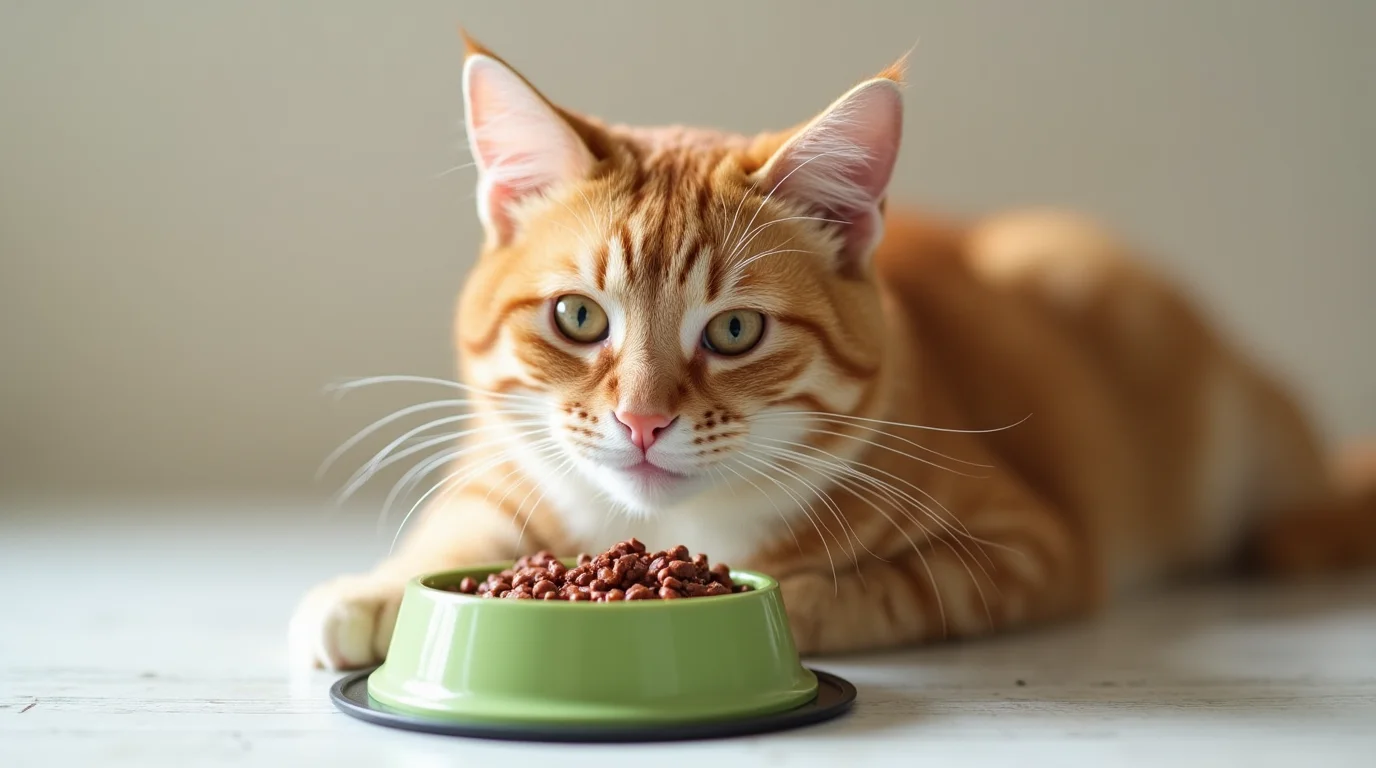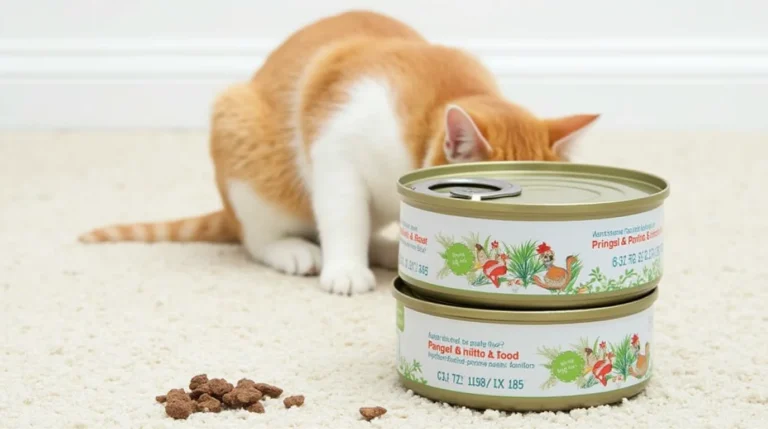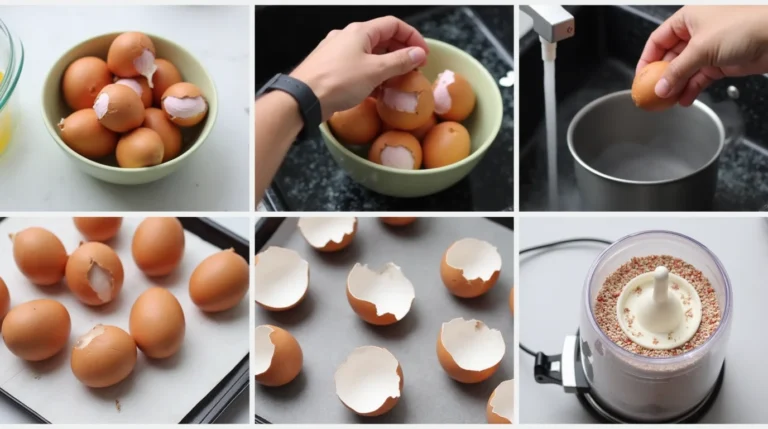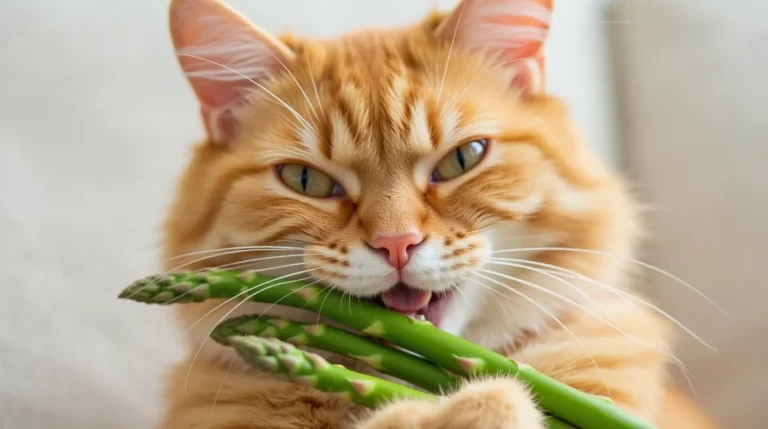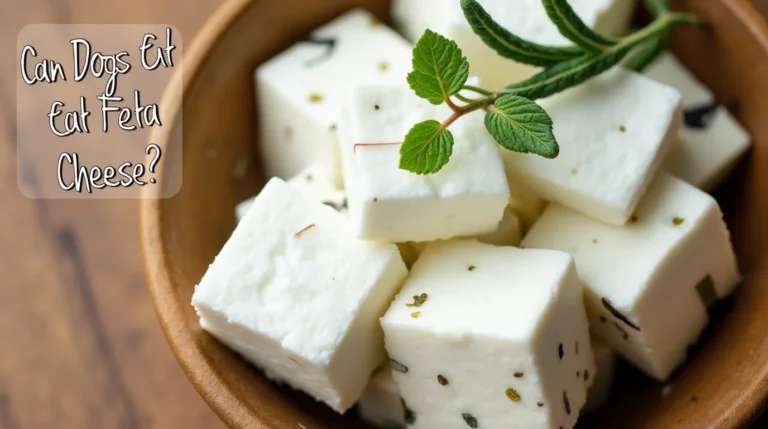Table of Contents
Cats with kidney disease require special care, and diet plays a crucial role in managing their condition. A renal diet for cats helps improve kidney function. It reduces toxin buildup and improves overall health.
If your cat has chronic kidney disease (CKD), choosing the right food can help slow the disease. It can also improve their quality of life.
In this guide, we will look at the key parts of a renal diet for cats. We will discuss why it is important and how to make sure your cat gets the best nutrition.
What Is a Renal Diet for Cats?
A renal diet for cats is a special diet. It helps support kidney function by reducing stress on the kidneys. Unlike regular cat food, it contains:
- Lower phosphorus levels – Helps slow kidney disease progression.
- Controlled protein levels – Reduces waste products that kidneys need to filter.
- Increased moisture content – Supports hydration and prevents dehydration.
- Essential fatty acids – Reduces inflammation and supports overall health.
- Added vitamins and minerals – Maintains a proper nutritional balance.
Why Is a Renal Diet Important for Cats with Kidney Disease?
When a cat’s kidneys do not work well, toxins can build up in the blood. This can cause symptoms like weight loss, vomiting, tiredness, and not wanting to eat. A renal diet for cats helps by:
- Reducing toxin accumulation – By lowering protein and phosphorus intake.
- Supporting hydration – Since cats with kidney disease are prone to dehydration.
- Maintaining muscle mass – With high-quality, easily digestible proteins.
- Improving appetite – As kidney disease often leads to reduced food intake.
Proper nutrition can significantly extend a cat’s lifespan and improve their comfort.
Key Nutrients in a Renal Diet for Cats
1. Low Phosphorus
Phosphorus contributes to kidney damage, so a renal diet must limit phosphorus levels. Lower phosphorus intake helps slow disease progression and reduces symptoms.
2. Controlled Protein Levels
Too much protein creates waste products that kidneys must filter. A renal diet for cats has good protein in moderate amounts. This keeps their muscles strong without stressing the kidneys.
3. High Moisture Content
Cats with kidney disease need extra fluids to help their kidneys function properly. Experts recommend supplementing with wet food or fresh water.
4. Omega-3 Fatty Acids
Found in fish oil, omega-3s help reduce kidney inflammation and support heart health.
5. Added B Vitamins
Cats with kidney disease lose more B vitamins through urine. A renal diet includes extra B vitamins to prevent deficiencies.
Best Foods for Cats with Kidney Disease
Veterinary-prescribed renal diets are the best option. Some top choices include:
- Hill’s Prescription Diet k/d – Low in phosphorus and high in essential nutrients.
- Royal Canin Renal Support – Formulated for palatability and kidney support.
- Purina Pro Plan Veterinary Diets NF – Helps maintain kidney function.
If prescription diets are not an option, you can formulate homemade diets with a vet’s guidance. You can include fresh-cooked lean meats, egg whites, and small amounts of low-phosphorus vegetables.
Foods to Avoid
Certain foods can worsen kidney disease and should be avoided:
- High-phosphorus foods – Dairy, fish, and bones.
- High-sodium foods – Processed meats and salty treats.
- Excessive protein sources – Red meat and organ meats.
Feeding a renal diet for cats means being mindful of every ingredient to prevent unnecessary kidney stress.
Transitioning Your Cat to a Renal Diet
Switching to a renal diet can be challenging, especially if your cat is a picky eater. Follow these steps for a smooth transition:
- Introduce Gradually – Mix the new food with the old one over 7-10 days.
- Warm the Food – This enhances aroma and makes it more appealing.
- Use Appetite Stimulants – If your cat refuses to eat, a vet may recommend medications.
- Try Different Textures – Some cats prefer wet food, while others like dry kibble.
Consistency is key to ensuring your cat adjusts to their new diet.
Conclusion
A renal diet for cats is one of the most effective ways to manage kidney disease and improve a cat’s quality of life. Choose foods that have low phosphorus, moderate protein, and high moisture. This can help your cat’s kidney health and keep them comfortable for many years. Always consult your veterinarian before making any dietary changes to ensure you meet your cat’s specific needs.
By prioritizing the right nutrition, you can help your feline friend live a longer, healthier life despite kidney disease.

